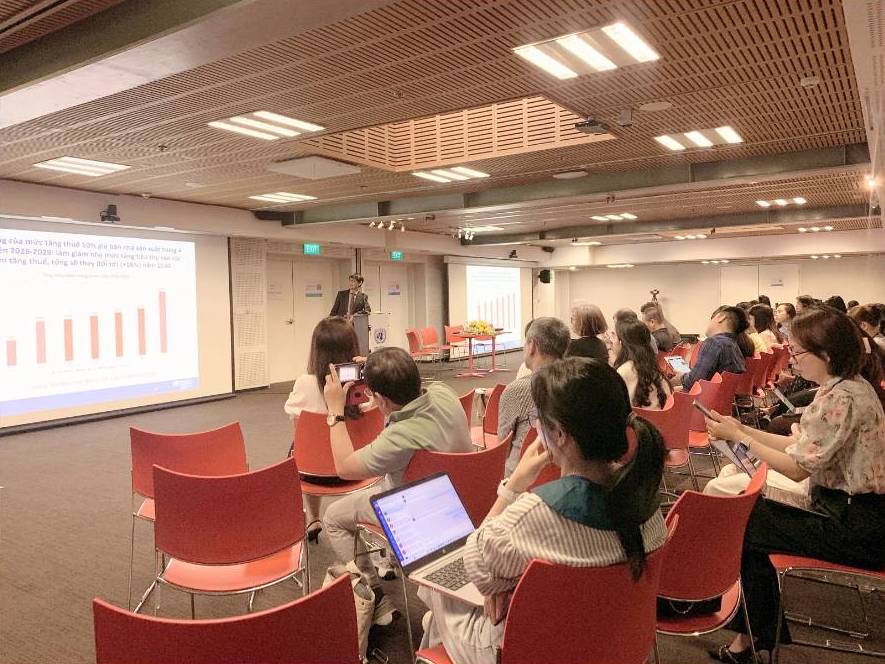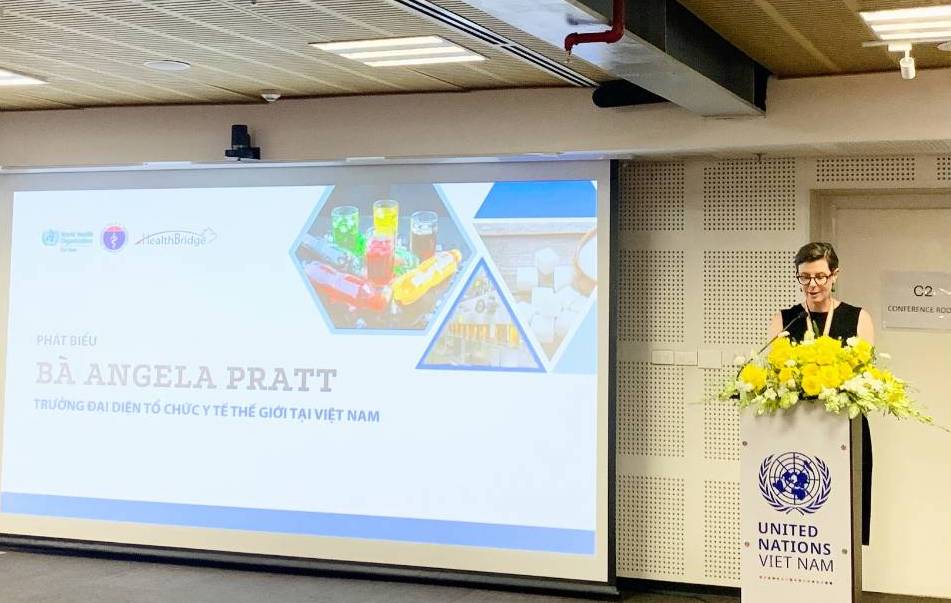According to the World Health Organization (WHO), regular consumption of sugary drinks (DUCD) increases the risk of diseases such as cardiovascular disease, cancer, etc. This is a serious problem, because these groups of diseases are the leading cause of death in Vietnam.

At the workshop " fourniing information to the press about the harmful effects of taxes on health and the role of special consumption tax (SCT) in consumer control" held on April 28, Dr. Angela Pratt - Chief Representative of WHO in Vietnam - emphasized that taxes on taxes are a risk factor for non-communicable diseases, which are the leading cause of death in Vietnam, and are especially harmful to children.
"To limit the use of sugary drinks, taxing sugary drinks is a mutually beneficial solution, both contributing to health protection and reducing medical costs. At the same time, this is also a source of revenue for the government budget" - Dr. Pratt said.

According to Dr. Angela Pratt, when applying special consumption tax on dietary supplements, consumers will tend to switch to healthier, healthier drinks. Manufacturers will make adjustments to the drink recipe to meet new customer needs. Thus, the industrial sector still maintains economic value.
In addition, Ms. Dinh Thu Thuy - Department of Legal Affairs, Ministry of Health - said that regular use of sugary drinks increases the risk of metabolic disorders such as type 2 diabetes, cardiovascular disease, high blood pressure, gout... while harming the teeth and negatively affecting bone and joint health.
"Consumption of sugary drinks also causes serious impacts on the economy, not only at the national level but also affects many different groups of people" - Ms. Thuy emphasized.
According to Ms. Thuy, applying special consumption tax on DOCD is an important measure in the intervention solutions recommended by WHO. This is to reduce consumption and the impact on public health, including improving public health, increasing revenue for the state budget and helping to reduce health care costs for related diseases, reducing future labor productivity losses.
"The negative impacts of applying special consumption tax on DucDD are not worrying. In order to protect public health, in the long term, it is necessary to consider giving a roadmap to expand scope, tax subjects and increase tax rates according to WHO's recommendations" - Ms. Thuy commented.
Ms. Thuy added that currently, the Ministry of Health has agreed on the expected receipt plan for the Special Consumption Tax Law project as proposed by the Ministry of Finance in Submission No. 147/TTr-BTC dated April 15, 2025. Accordingly, the special consumption tax rate for this item may extend the application period and roadmap to 8% from 2027 and 10% from 2028.











